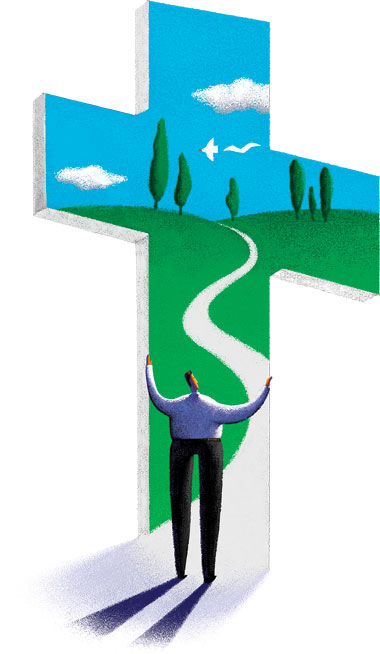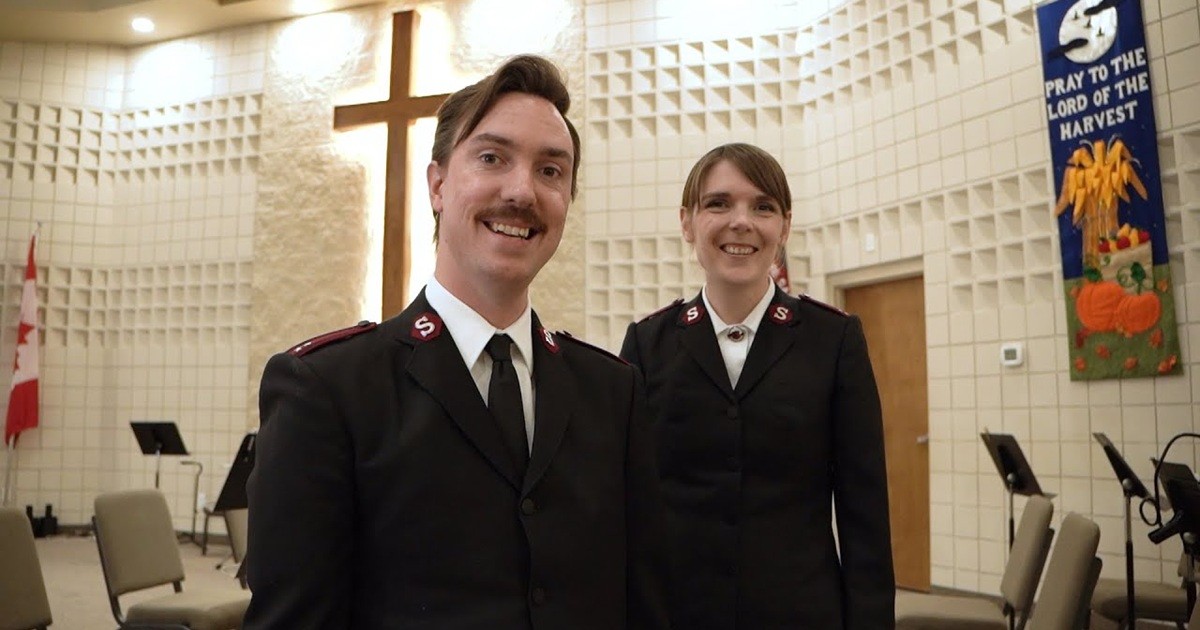 All I really need to know I learned in kindergarten.” At least that's what Robert Fulgham declared when he published a book by that title in 1986. There is probably some truth in what Fulgham says. In kindergarten we learn about playing fair, cleaning up our mess, saying sorry when we hurt someone, washing our hands before we eat, and balancing work and play. Maybe the world would be a better place if we all stopped for afternoon cookies and milk, and followed it up with a nap!
All I really need to know I learned in kindergarten.” At least that's what Robert Fulgham declared when he published a book by that title in 1986. There is probably some truth in what Fulgham says. In kindergarten we learn about playing fair, cleaning up our mess, saying sorry when we hurt someone, washing our hands before we eat, and balancing work and play. Maybe the world would be a better place if we all stopped for afternoon cookies and milk, and followed it up with a nap!
Defining Our Vision
However, those of us who have moved beyond the rudiments of kindergarten know there is more to life than that. Our faith affirms that the betterment of our world happens only as lives are given over to the lordship of Jesus Christ. This conviction has shaped and formed the vision of The Salvation Army from its earliest days. With soup, soap and salvation, Salvationists have helped people find relationship with Christ.
This perspective is best represented in William Booth's In Darkest England and the Way Out. Our Founder envisioned a plan that would rescue masses of people living in the slums of London's East End and beyond. Understanding both spiritual and social dimensions of salvation, Booth believed that “the permament deliverance of humankind from misery, either in this world or the next, was made possible through the regenerating power of the Holy Spirit.” In his vision, “the relief of temporal misery made the difficult easier and what was impossible possible. All could find their way to the cross of Christ.”
The Army Motif
In the final instalment of this Salvationist series, “Why an Army?,” we continue to seek our way as Salvationists amid the complexity of our times. What unique gifts do Salvationists offer to counteract the problems of our day? What is our God-inspired vision? Is there an “Army motif” that runs through our ministry and keeps us focused?
Salvationists see a world in which the justice and mercy of God extend to all. We see a world that keeps relationship with Christ central to all things. Agents of grace are still needed to make it “easy where it is now difficult” and “possible where it is now impossible” for people to find their way to Christ. In this mission, The Salvation Army finds ongoing relevance and resolve.
In the secular sense, military armies understand battle tactics have to be directed to achieve a particular aim. When soldiers are deployed on a mission, they have a clear picture in their minds of what they are setting out to accomplish. In fact, deployment doesn't happen until this picture is well defined and owned by all those setting out on the mission.
Our current struggle as an Army relates to the challenges of defining and owning our corporate vision. For some, the debate has revolved around contemporary versus traditional models of ministry. Others have speculated whether or not the Army needs to tone down its distinctives—such as our uniform and military language—so that we don't offend or distance people from our message. In some settings, unfortunately, this debate has impacted our ability to wholeheartedly engage in mission.
Clarifying Our Vision
How can we move forward? Salvationist visionaries are challenged to reclaim the value of Salvation Army distinctives. It has been helpful to discuss what is relevant to our missional agenda. But have we come to a place where we can now corporately reaffirm the distinctives of Salvationism?
The world still needs the aggressive evangelistic presence of a Salvation Army, marching into places where others fear to go. It still needs our unique sacramental position as a reminder of how the outward demonstration of faith is naturally expressed in a “sleeves-rolled-up” brand of Christianity. To paraphrase General Albert Orsborn, our lives must be Christ's broken bread, our love his outpoured wine. Let us not be timid in embracing the power of this testimony to the world.
We must continue to set ourselves apart from the influences of secular society. While we may not think a social drink every now and then weakens us, it weakens our testimony to the alcoholic. Abstinence has been our means of showing love to the world and how freedom from addiction is possible in Christ's strength.
As Salvationists, we must value our distinct identity as soldiers. The uniform is a powerful tool to convey this identity. Let's not minimize the significance of this privilege.
All of these distinctives are gifts God has given us to help realize our vision.
Big Vision Versus Small Expectations
Salvationist visionaries are also called to reaffirm the bigness of our God in a world of small expectations. A barrage of bad news convinces us that tomorrow's headlines won't change. Can you imagine our reaction if we woke up one morning to only good-news reports? Most of us would think the media had failed us somehow. The point is that we serve a big God who is able to bring creative order out of chaos. Who are we to say that God cannot solve big problems? Salvationist visionaries embrace a big picture of God and they anticipate divine activity in their world.
Imagine a crowd waiting outside the corps building Sunday morning. Word is out around the neighbourhood that something vibrant is happening at The Salvation Army. Lives are being radically changed! Hope has moved in! And the Salvationists in the crowd sing: “We have caught the vision splendid of a world which is to be” (SASB 833).
In my mind's eye, I can see it. Can you? People coming from east and west, sitting down in the Kingdom of God—people from every tribe and every race. It's a big picture of the Kingdom and we have a big God who inspires this vision. In that moment, memories of kindergarten and every place in-between will be fleeting thoughts. We will find ourselves in a better place, for all that we need we will have found in Christ and Christ alone.
Major Julie Slous is the corps officer at Heritage Park Temple in Winnipeg. She has a doctorate in ministry from Luther Seminary in Minneapolis, U.S.A. Click here for more articles in the Why an Army? series.









Is there no middle ground here? Can we not be distinct and wear our brand in a new and avant-garde kind of way? Does it have to be the same uniform they redesigned in 1975? Will wearing a casual shirt with a Red Shield mean we are not holding to the founder’s vision? Can we not be a contemporary Army that marches to the tune of Soup, Soap and Salvation but who can engage our culture in a way that they can understand while proudly wearing the Army’s distinctive brand?
I think there is. I think that we can be a contemporary army that has a distinct look, a distinct style and a distinct message. I want to be identified as a Salvationist. I think we need to resist hanging on to the past but move forward with a renewed sense of vision and purpose. We must hold fast to the mission of the Salvation Army and we must get out of our pews and get personally and corporately involved in that mission.
However, before we can do that, we need to be a Holy Army – one that is on fire with the power of the Holy Spirit behind us. For no matter what we wear, they are just clothes if they are not worn for the Lord Jesus. No matter what we call ourselves, it means nothing without Jesus. For it is His army that we are soldiers in. We need to remember and hold fast to that fact.
Thank you for this series of very well written and though provoking articles!